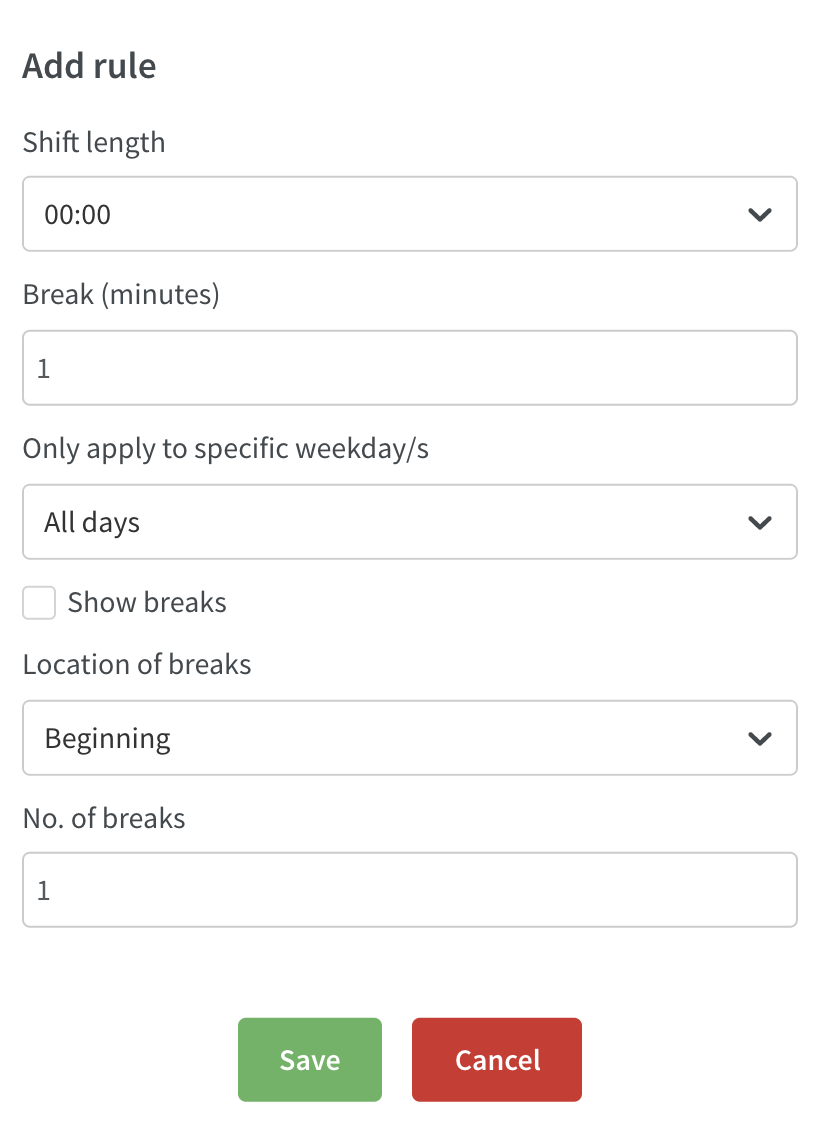Version 0071
Role management
People with expired roles
With this release we have changed so that it's now possible to assign a role to a person who has previously had a role that has expired.
When going to organisation and add member you will now be able to find people with expired roles and can assign them a new valid role.
Shift type management
Break calculation rules
With the release of Neo 0071 we are introducing add, edit and delete for break calculation rules which is the third part of shift type management.
Under break calculation rules, you can define the amount of time that has to be worked before an employee is to have a break, how long it should be, at what point in the shift it should be scheduled and the day of the week on which this rule applies.
You will find break calculation rules under both account settings and group settings (only on unit level).
Rules that are created under account settings will be shared to all units within the organisation and rules created under group settings will be local and only available for that group (unit). When viewing break calculation rules under group settings a shared label will be visible next to the rule if it is inherited from account settings.

To add a new rule click add, enter all the required data and press save

Single Sign On
SSO
With this release it's now possible to use Single Sign On when accessing Neo.
Read more about SSO by clicking here
Schedule
As of this release, we have made a logic change in the schedule view. You will now be able to see and edit schedule items, i.e. shifts, punches and absences assigned to someone with a higher level role than yourself.
Example:
Manager (with level 2 role) is assigned to a shift on unit A.
Local manager (with level 3 role) can now see this shift in the schedule view on his/her unit.
